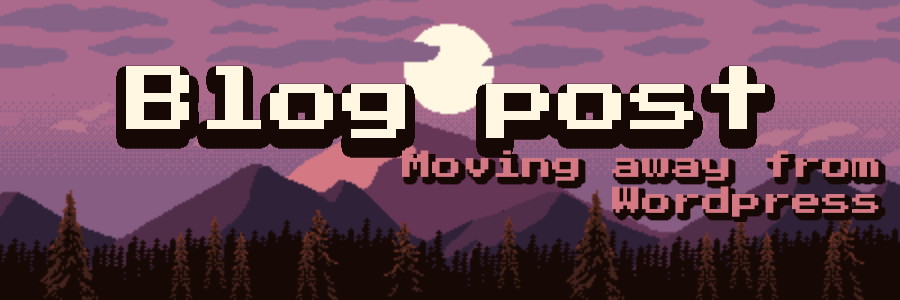Moving Away from WordPress

The story starts about a year ago when, a bit curious and a bit bored, I decided to explore the world of static site generators like Hugo, Jekyll, and others. My blog had been running on WordPress for quite some time, but I was getting frustrated with the complexity and constant maintenance that came with it.
I Just Need a Space to Write
Don’t get me wrong—WordPress is a fantastic platform for many use cases. Whether you’re running a massive e-commerce site or a corporate blog, WordPress offers the tools, flexibility, and plugin support to build something powerful and feature-rich.
However, when it comes to something as simple as a personal blog, the maintenance costs quickly become too high. You’re constantly updating plugins, patching security vulnerabilities, dealing with plugin conflicts, and managing backups and databases. As my site grew, so did the time I needed to spend on all these issues.
For a blog like mine, this complexity just didn’t make sense anymore. It started feeling like I was driving a high-performance sports car to pick up groceries—way more than I needed.
Enter Publii
That’s when I discovered Publii. In simple terms, Publii is a desktop app that generates static websites. What sets it apart is that it combines the simplicity and speed of static sites with an easy-to-use interface for managing content. There’s no need for a complex server setup or worrying about databases—just write your content, and Publii handles the rest.
It also supports direct publishing to several platforms, including GitHub Pages, making deployment easy and seamless. This integration means you don’t need to worry about manually uploading files or configuring servers—just a few clicks, and your site is live.
The migration process from WordPress was seamless: export your .WXR file, import it into Publii, and you’re done.
The writing experience
Publii gives you multiple ways to write content, depending on your style.
Markdown: Fast and simple. Perfect for straightforward posts like this one.
WYSIWYG: Ideal for more polished content where design matters, showing exactly how the post will look as you write.
Block Editor: A more structured approach if you prefer building content visually, though it’s not my personal choice.
For most of my posts, Markdown is my go-to, but for more complex layouts, I switch to the WYSIWYG editor. The block editor is there if you need it.
A Secure Solution
Like other static site generators, Publii is pretty secure, too. Since it generates static sites, there’s no database or backend code running, which means there’s nothing for attackers to exploit. Without the complexity of dynamic content or server-side processes, the attack surface is drastically reduced.
The Perfect Fit
To me, this is a perfect fit. It takes away the complexity without sacrificing flexibility, and so far, it’s been a game-changer for my workflow.